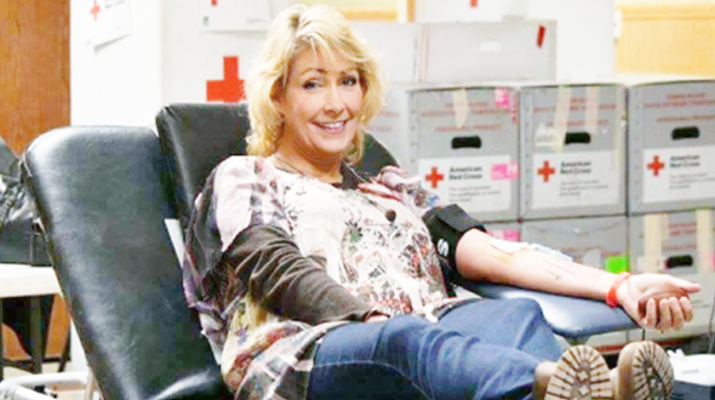Red Cross officials calling on people to donate blood to alleviate shortage
By Ernst Lamothe Jr.
Every year, Carolyn Woomer and her family host a blood drive in Tonawanda. It’s been three years since her son, Jed, died after battling with sarcoma, a tumor that occurs in the bones and soft tissues. He was the captain of his high school swim team and was always a blood donor once he became of age.
“He went through radiation and chemotherapy and needed a lot of blood,” said Woomer. “He had to go through numerous blood transfusions and couldn’t have survived as long as he did without it.”
It’s a story that American Red Cross officials talk about this season. When the weather heats up in the summer, the blood supply cools down. The organization is now facing a critical blood shortage and is issuing an emergency call for eligible blood and platelet donors of all blood types to give now and help save lives.
Blood donations have fallen short of expectations for the past two months, resulting in about 61,000 fewer donations than needed and causing a significant draw down of the Red Cross blood supply. In comparison, the organization had only 39,000 fewer donations this time last year.
The shortfall is the equivalent of the Red Cross not collecting any blood donations for more than four days.
“During the summer months, you have less community blood drives by businesses and churches because people are on vacation,” said Patty Corvaia, communications manager of the New York-Penn Blood Services Region. “On top of that, more than 20 percent of our donations come from high school and college students, and with school being out, we aren’t able to have blood drives there. This season is always a tough time for us, but this year it is even worse.”
New donors and those who haven’t given in a while are especially encouraged to roll up a sleeve and help save lives. Nearly one-third fewer new blood donors came out to give last summer than during the rest of the year due in part to schools — where blood drives are held and where new donors give — being out of session during the summer months.
Because of this issue, area Red Cross organizations in Rochester, Buffalo and Syracuse are setting up numerous blood drives throughout the summer to stem the tide. Throughout the New York-Penn region, the Red Cross serves around 90 hospitals. It is Rochester’s primary blood supplier for all its hospitals along with some in the Buffalo area.
“We need community blood drives throughout the year. We need blood on the shelves to provide to hospitals for trauma patients and burn victims who need immediate help as well as people who are in surgery, cancer patients and those with blood disorders,” said Corvaia.
“People need to understand that for just 40 minutes of your time donating blood you can save someone’s life and that can be impactful,” said Woomer.
Blood cannot be saved forever with platelets lasting five days and red blood cells lasting 42 days. Blood donation is more vital than people understand, especially since less than 5 percent of the eligible population donates. The need for blood is high and officials encourage people to donate at least twice a year.
Every two seconds in the United States blood and platelets are needed to respond to patient emergencies, including accident and burn victims, heart surgery and organ transplant procedures, and patients receiving treatment for leukemia, cancer or sickle cell disease.
The Red Cross must collect nearly 14,000 blood donations every day for patients at approximately 2,600 hospitals across the country.
“A lot of people may be fearing the unknown if they have never given blood,” said Corvaia. “However, it doesn’t take long to give a pint of blood and it could potentially save so many lives with that one donation.
How to Help
To schedule an appointment to donate, use the free Blood Donor App, visit redcrossblood.org or call 1-800-RED CROSS (1-800-733-2767). The Red Cross has added more than 25,000 additional appointment slots at donation centers and community blood drives across the country over the next few weeks to accommodate more donors. Donation appointments and completion of a RapidPass online health history questionnaire are encouraged to help reduce the time it takes to donate.

